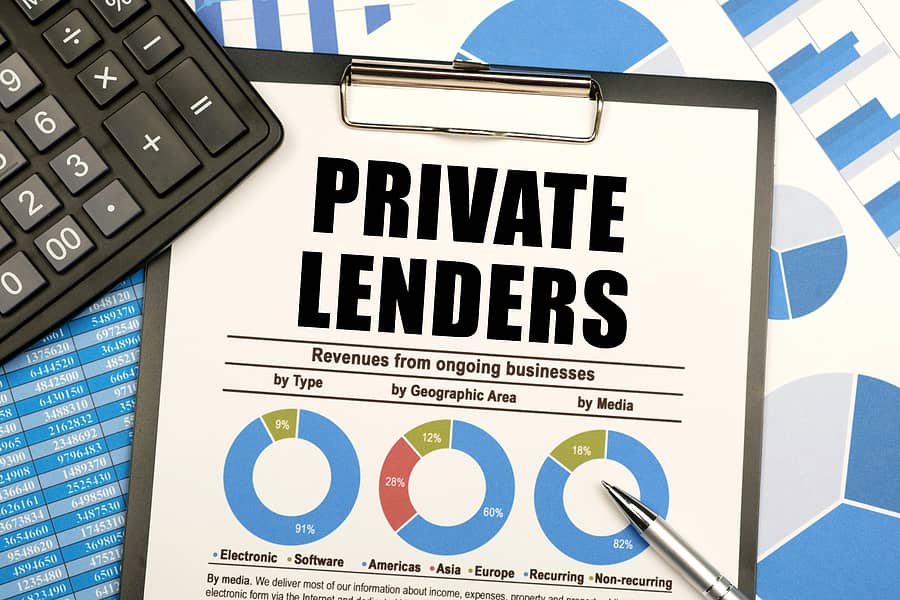Finding the right mortgage product comes down to two different choices. Traditional institutions like banks and credit unions have strict lending requirements that include adherence to credit scores. Alternative lenders use different criteria, including the equity that’s been built up on a property. Private mortgages are often considered an alternative choice for people who don’t meet more traditional criteria.
The number of private mortgages is rising in the province. Consider a recent report from the Toronto Star. It quotes numbers from the Financial Services Regulatory Authority of Ontario (FSRA) stating that these alternative products were worth $22.4 billion (CDN) in 2021. That represents a jump of 72% from the $13 billion (CDN) in 2019.
The numbers are spiking because traditional mortgages are harder to secure for a number of different reasons, including rising interest rates and strict stress tests to qualify.
Most recently (September 11), The Bank of Canada held its benchmark rate at 5%. These latest private mortgage figures quoted in the Toronto Star were published by the FSRA on Feb 27.
Here’s everything that you need to look at to make the right choice when it comes to either a private or traditional mortgage.
What is FSRA and what do they do?
The data is important partially because it comes from a reputable source. The Financial Services Regulatory Authority of Ontario (FSRA) is a Crown Corporation/regulatory agency. They regulate a number of different sectors, including mortgage brokers. As of June 30, 2023, the FSRA was responsible for regulating 3,061 mortgage brokers and over 15,000 mortgage agents.
Their mission involves promoting high standards of business conduct and a competitive financial services sector. Their mandate involves transparency surrounding information and stopping any deceptive and fraudulent practices.
The FSRA was one of the first bodies to notice the shift from traditional to private mortgages.
What are the reasons for the rise in private mortgages?
A recent FSRA poll found that 26% of respondents found private mortgages more appealing due to their flexible terms. Another 13% noted the more straightforward application process. Finally, 12% of the people responding to the FSRA poll cited the belief that private mortgages are better for people who are self-employed or don’t have a consistent, steady income.
There are other more current reasons for the spike in private mortgages. The rising BoC interest rates, which went from 1% in April of 2022 to 5% as of September 06, 2023, have left some borrowers unable to qualify for a traditional loan.
So, borrowers need to understand the differences between the two types of loans as this trend accelerates.
How do private mortgages differ from traditional loans?
There are some significant differences between private mortgages and traditional loans that you need to be aware of. They include the following:
- Your Income Makes A Difference. More traditional lenders favour a more stable income source. Private lenders are usually more flexible. They work with self-employed people and those who have fluctuating methods of making money. These alternative lenders also place a higher value on the appraised value of a property.
- Private Lenders Are More Flexible. This is another area where private lenders take a different approach. They focus on a property’s value and not just your income or credit history. One of the big criteria they use is what’s called a Loan to Value (LTV) ratio. They will work with up to 75% of the appraised value of a house or other property in an urban setting. The same alternative lenders use a 60% to 65% LTV number in rural areas.
Private lenders also have faster processing times. Here’s some more information on the process. Remember, private lending is an excellent alternative when people are having trouble getting more traditional loans.
What challenges are people facing in securing traditional loans?
The most significant problem people face when they’re looking for a bank or credit union mortgage is their credit score. While there’s no definite number that will disqualify an application, Equifax reports credit scores below 560 will have a difficult time getting a traditional loan.
Not having stable employment that you can report can be another headwind. The debt-to-income ratio (DTI) can present another issue. In a nutshell, this compares your monthly income to your monthly payments. The lower the DTI, the better your chances of getting a mortgage through traditional sources.
Rising interest rates, as well as a slowing economy and high inflation, are also contributing to the difficulties. Still, it’s important to keep in mind that private mortgages have come with some challenges, too.
What are the potential risks or drawbacks of private mortgages?
Understanding these alternative lending products is essential. They do carry a few risks that you should be informed of to make the right decision.
- In some instances, a private mortgage only pays the interest on a loan. That means that you’re not paying down any of the principal.
- Private lenders are usually taking on a higher risk. That means the rates they charge for these alternative mortgages can be higher.
- Traditional mortgages put the emphasis on the ability to repay. The value of the property comes second. With a private mortgage, location and value come first. The applicant’s financial situation comes next.
- These alternative lenders usually offer loans that only last for a year or two. Borrowers who can’t get traditional financing can wind up in a cycle with these higher cost short-term mortgages.
Make sure to find out all the details before you sign for a private mortgage, including the different fees, interest rates and the length of the term.
Mortgage Broker Store specializes in several different mortgage-related products. Mortgage requirements that don’t meet traditional lending institution requirements are one of our focuses. We have private lenders, brokers, and licensed mortgage agents on the team. We can help you prepare for and get a private loan that will suit your needs.
Email ron@mortgagebrokerstore.com or call 416-499-2122.



